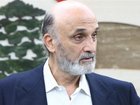Spotlight
As pressure continues to mount on affected people in Lebanon and vulnerabilities continue to deepen day after day, the Humanitarian Coordinator a.i, Edouard Beigbeder, announced that the Lebanon Humanitarian Fund (LHF) has allocated US$8 million to meet urgent needs and enhance preparedness ahead of the fast-approaching winter, the U.N. Office for the Coordination of Humanitarian Affairs (OCHA) in Lebanon said.
"Vulnerable families in Lebanon are affected by insufficient access to water, unaffordable prices of basic commodities, limited access to life-saving services, thus taking desperate measures to survive, and we need to act now and avoid a further deterioration of the humanitarian situation," stated the Humanitarian Coordinator a.i.
 Full Story
Full Story
Six Syrians including two infants have died of thirst and hunger as they attempted to cross the Mediterranean Sea in a makeshift boat that likely sailed from Lebanon.
 Full Story
Full Story
Caretaker Foreign Minister Abdallah Bou Habib on Monday confirmed that U.S. mediator Amos Hochstein has made new proposals regarding the sea border demarcation file.
 Full Story
Full Story
The United Nations Interim Force in Lebanon (UNIFIL) on Monday stressed that it is still coordinating its patrols with the Lebanese Army, dismissing rumors and false reports in this regard.
 Full Story
Full Story
Maronite Patriarch Beshara al-Rahi has called on President Michel Aoun to “exert efforts with all those concerned to elect a president prior to the end of his term and to ‘do the impossible’ to achieve this.”
 Full Story
Full Story
Deputy Speaker Elias Bou Saab confirmed overnight that Lebanon has “received from U.S. mediator Amor Hochstein the coordinates of the sea buoys” that Israel wants to delineate as part of the maritime border demarcation agreement.
 Full Story
Full Story
A book of condolences for Queen Elizabeth II will open for the public at the National Library in Beirut over the next four days, the British embassy said on Monday.
The book of condolences will be open during the following times:
 Full Story
Full Story
Maronite Patriarch Beshra al-Rahi appeared Sunday to back a controversial move to name an alternate judge in the Beirut port blast case.
“It is unfortunate that the Lebanese have reached a state of mistrust and politicization, which is what’s happening today between the families of victims of the Beirut port bombing and caretaker Justice Minister Henri Khoury,” al-Rahi said in his Sunday Mass sermon.
 Full Story
Full Story
Lebanese Forces leader Samir Geagea has said that the LF does not want a presidential vacuum, noting that it is Free Patriotic Movement chief Jebran Bassil who "does not want to endorse any president but himself."
 Full Story
Full Story
The U.S. Embassy in Beirut on Friday voiced optimism over the visit that U.S. mediator Amos Hochstein made to the country earlier in the day.
 Full Story
Full Story




